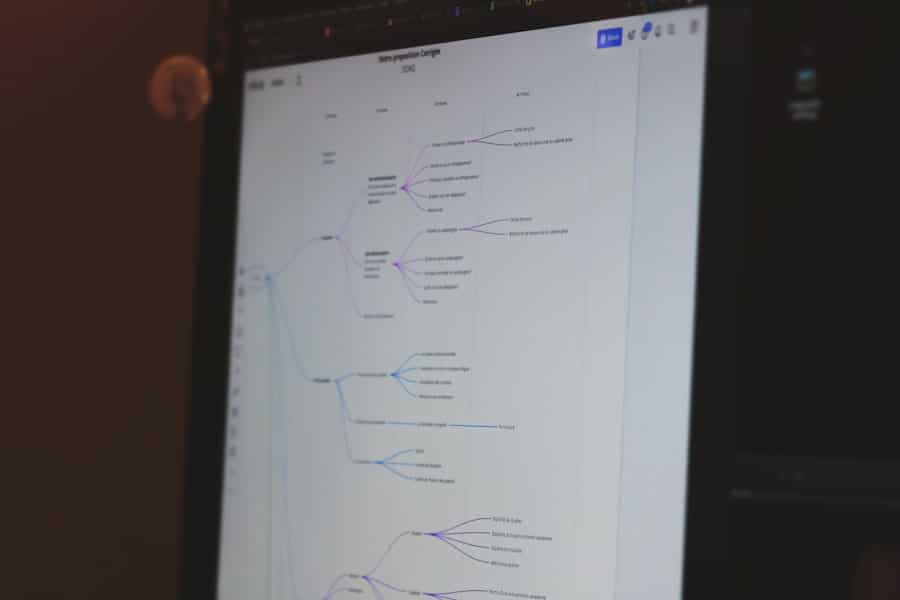Skill mapping is a systematic approach to identifying and categorizing the skills and competencies that individuals possess in relation to their professional roles and career aspirations. This process involves a thorough analysis of both hard skills—such as technical abilities and knowledge specific to a field—and soft skills, which encompass interpersonal abilities, communication, and emotional intelligence. By creating a visual representation or a detailed inventory of these skills, individuals can gain clarity on their strengths and areas for improvement, ultimately guiding their career development.
The concept of skill mapping extends beyond mere inventory; it serves as a strategic tool for aligning personal capabilities with organizational needs. In many industries, the rapid pace of technological advancement and shifting market demands necessitate a continuous reassessment of skills. Skill mapping allows individuals to stay relevant by identifying gaps in their skill sets and proactively seeking opportunities for growth.
This alignment not only benefits the individual but also enhances organizational effectiveness by ensuring that employees are equipped with the necessary competencies to meet evolving challenges.
Key Takeaways
- Skill mapping is the process of identifying and assessing an individual’s skills, knowledge, and abilities to create a comprehensive profile of their capabilities.
- Skill mapping is crucial in career planning as it helps individuals understand their strengths and weaknesses, and identify areas for improvement and growth.
- Skill mapping platforms use various tools and assessments to gather data on an individual’s skills and create a visual representation of their skill set.
- Using skill mapping platforms can help individuals identify career paths, set goals, and make informed decisions about their professional development.
- To effectively utilize skill mapping platforms, individuals should regularly update their profiles, seek feedback, and use the platform’s resources to enhance their skills and knowledge.
The importance of skill mapping in career planning
In the realm of career planning, skill mapping plays a pivotal role in helping individuals navigate their professional journeys. By providing a clear picture of one’s current skill set, it enables individuals to make informed decisions about their career paths. For instance, someone looking to transition into a new industry can use skill mapping to identify transferable skills that may not be immediately apparent.
This process fosters self-awareness, allowing individuals to recognize their unique value propositions in the job market. Moreover, skill mapping is instrumental in setting realistic career goals. By understanding their strengths and weaknesses, individuals can create targeted development plans that focus on acquiring new skills or enhancing existing ones.
This strategic approach not only increases the likelihood of achieving career objectives but also instills confidence in individuals as they pursue new opportunities. In an era where lifelong learning is essential, skill mapping serves as a foundation for continuous professional development, ensuring that individuals remain competitive and adaptable in their careers.
How skill mapping platforms work

Skill mapping platforms are digital tools designed to facilitate the process of identifying, assessing, and developing skills. These platforms typically employ a combination of self-assessment questionnaires, competency frameworks, and data analytics to provide users with insights into their skill sets. Users begin by completing assessments that gauge their proficiency in various skills, often categorized into technical and soft skills.
The results are then compiled into a comprehensive profile that highlights strengths, weaknesses, and potential areas for growth. Many skill mapping platforms also incorporate features such as personalized learning pathways, which suggest relevant courses or training programs based on the user’s identified skill gaps. Additionally, some platforms leverage artificial intelligence to analyze job market trends and recommend skills that are in high demand within specific industries.
This data-driven approach not only enhances the accuracy of skill assessments but also empowers users to make informed decisions about their career development strategies.
The benefits of using skill mapping platforms
Utilizing skill mapping platforms offers numerous advantages for individuals seeking to enhance their career trajectories. One of the primary benefits is the ability to gain a comprehensive understanding of one’s skills in relation to industry standards. By comparing personal competencies against established benchmarks, users can identify areas where they excel and those that require further development.
This clarity is invaluable for crafting targeted resumes and preparing for job interviews, as it allows individuals to articulate their qualifications with confidence. Another significant benefit is the facilitation of personalized learning experiences. Skill mapping platforms often provide tailored recommendations for courses, workshops, or certifications that align with users’ career goals.
This targeted approach to learning not only saves time but also ensures that individuals invest their resources in acquiring skills that will have the most impact on their careers.
How to effectively utilize skill mapping platforms in career planning
To maximize the effectiveness of skill mapping platforms in career planning, individuals should approach the process with intentionality and an open mind. First and foremost, it is essential to engage fully with the self-assessment tools provided by the platform. Taking the time to reflect on one’s experiences and competencies will yield more accurate results, leading to a clearer understanding of one’s strengths and weaknesses.
Users should also be prepared to revisit these assessments periodically, as skills can evolve over time due to new experiences or changes in industry demands. Once users have established a comprehensive skill profile, they should leverage the platform’s resources to create actionable development plans. This may involve setting specific goals for acquiring new skills or enhancing existing ones through targeted training programs or experiential learning opportunities.
Additionally, users should actively seek out networking opportunities within the platform’s community features, engaging with mentors or peers who can provide guidance and support as they navigate their career paths. By integrating these strategies into their use of skill mapping platforms, individuals can create a dynamic and responsive approach to career planning.
The future of skill mapping in career planning

As the landscape of work continues to evolve, the future of skill mapping in career planning appears promising and dynamic. With advancements in technology, particularly artificial intelligence and machine learning, skill mapping platforms are likely to become increasingly sophisticated in their ability to analyze user data and provide personalized insights. For instance, future platforms may incorporate real-time labor market analytics that continuously update users on emerging skills and industry trends, allowing for more agile career planning.
Moreover, as organizations increasingly recognize the importance of employee development and retention, skill mapping will likely play a crucial role in talent management strategies. Companies may adopt internal skill mapping initiatives to assess employee competencies and identify potential leaders within their ranks.
Potential challenges and limitations of skill mapping platforms
Despite the numerous advantages offered by skill mapping platforms, there are inherent challenges and limitations that users should be aware of. One significant concern is the accuracy and reliability of self-assessment tools. Individuals may overestimate or underestimate their abilities due to biases or lack of awareness about certain competencies.
This discrepancy can lead to misguided career decisions if users do not seek external validation or feedback from peers or mentors. Additionally, while many platforms provide valuable resources for skill development, not all users may have equal access to these opportunities. Factors such as socioeconomic status or geographic location can influence an individual’s ability to engage with certain training programs or networking events suggested by the platform.
As such, it is essential for users to approach skill mapping as one component of a broader career development strategy that considers these external factors.
Tips for choosing the right skill mapping platform for your career planning needs
Selecting the right skill mapping platform is crucial for maximizing its benefits in career planning. First and foremost, individuals should assess their specific needs and goals before exploring available options. For instance, those seeking comprehensive assessments may prioritize platforms that offer robust self-evaluation tools and detailed competency frameworks.
Conversely, individuals looking for targeted learning opportunities might focus on platforms that provide personalized course recommendations based on identified skill gaps. Another important consideration is user experience; an intuitive interface can significantly enhance engagement with the platform’s features. Prospective users should look for platforms that offer trial periods or demos to evaluate usability before committing financially.
Additionally, researching user reviews and testimonials can provide insights into the effectiveness of various platforms in real-world applications. Finally, it is beneficial to consider whether the platform fosters community engagement through networking opportunities or mentorship programs. A supportive community can enhance the overall experience by providing users with valuable connections and resources as they navigate their career paths.
By carefully evaluating these factors, individuals can choose a skill mapping platform that aligns with their unique career planning needs and aspirations.
Skill mapping platforms play a crucial role in career planning by helping individuals identify their strengths and areas for improvement. These platforms provide valuable insights into the skills needed for various job roles and industries, allowing users to make informed decisions about their career paths. In a related article on the best software for literature review, researchers and academics can also benefit from technology tools that streamline the process of conducting literature reviews and gathering relevant information. Just as skill mapping platforms aid in career development, software for literature review can enhance the research process and contribute to academic success.
FAQs
What is a skill mapping platform?
A skill mapping platform is a tool or software that helps individuals and organizations identify, assess, and map their skills and competencies. It provides a visual representation of the skills and knowledge possessed by individuals or within an organization.
How does a skill mapping platform help in career planning?
A skill mapping platform helps individuals in career planning by providing insights into their current skills, identifying areas for improvement, and suggesting potential career paths based on their strengths and interests. It also helps organizations in workforce planning and development by identifying skill gaps and training needs.
What are the benefits of using a skill mapping platform for career planning?
Some of the benefits of using a skill mapping platform for career planning include:
– Identifying and leveraging individual strengths
– Identifying areas for skill development
– Aligning career goals with skill sets
– Making informed decisions about career paths
– Supporting workforce planning and development for organizations
How can individuals and organizations access skill mapping platforms?
Skill mapping platforms are often available as online tools or software that can be accessed through a web browser. Some platforms may require a subscription or payment, while others may offer free versions with limited features. Organizations may also develop their own internal skill mapping platforms tailored to their specific needs.
What are some popular skill mapping platforms available in the market?
Some popular skill mapping platforms include LinkedIn Skills Assessment, SkillSurvey, SkillsMapper, and TalentGuard. These platforms offer a range of features such as skills assessment, competency mapping, career path recommendations, and workforce planning tools.

